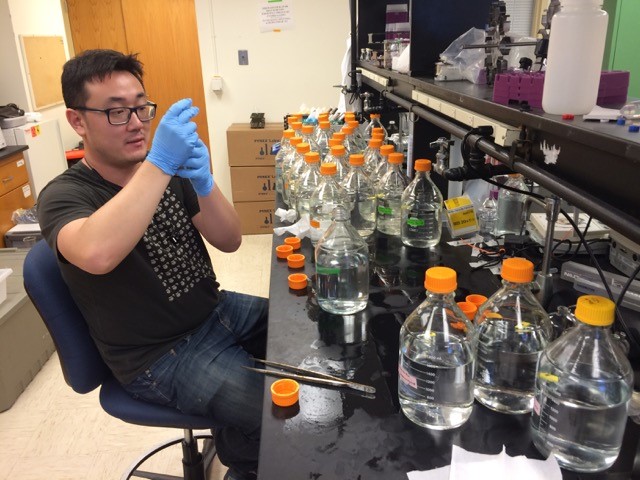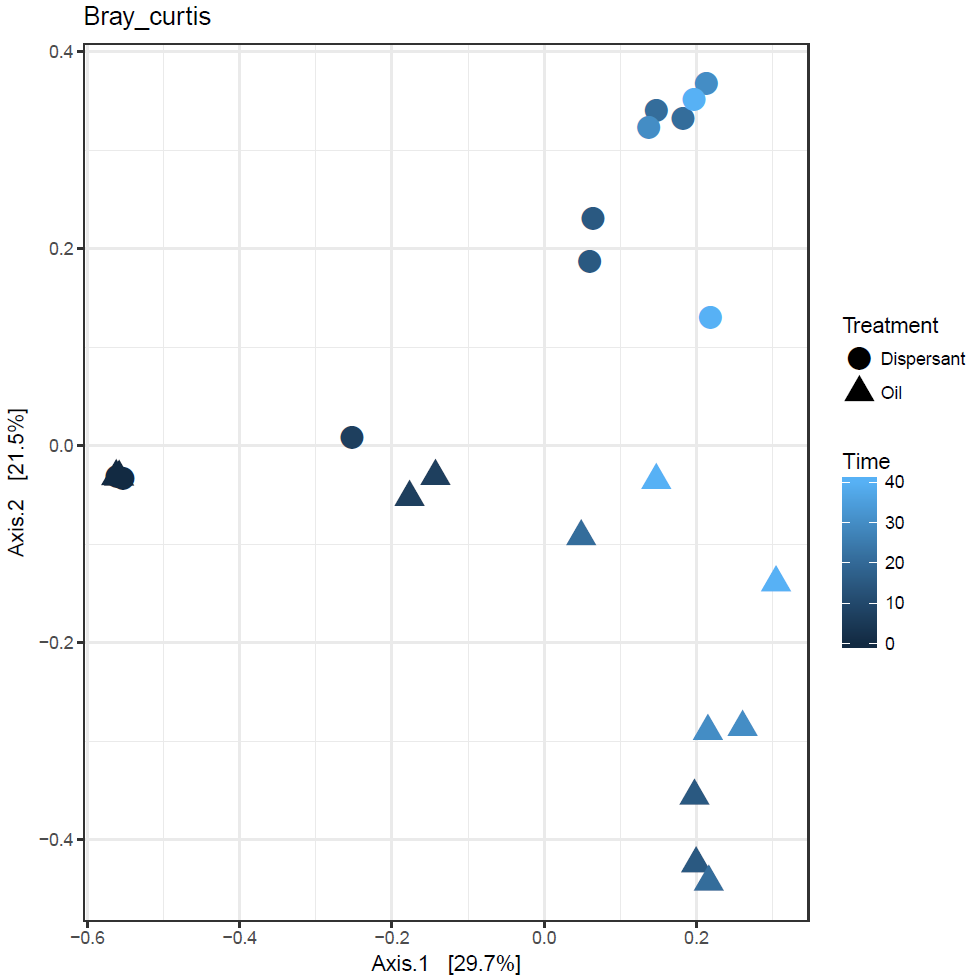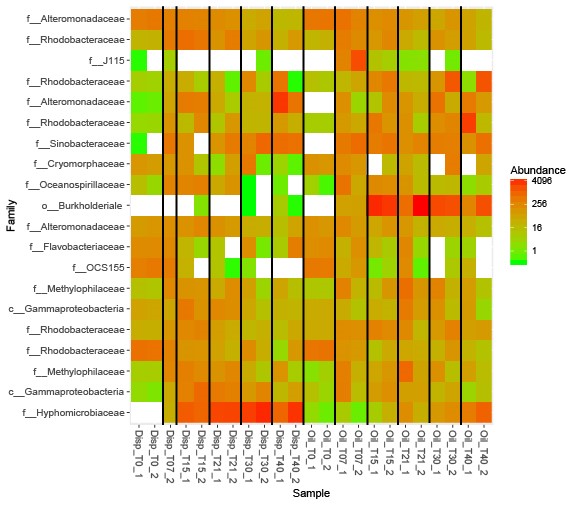
Xiaoxu Sun, Student of the Month, April 2017

Natural oil degrading microbes play a critical role in the ecosystem’s response to oil. These bio-degraders are found throughout the Gulf, especially in areas of natural seeps. Different groups of bacteria degrade oil in different stages – first, secondary, and late responders. Their role in cleaning up surface spills is highly studied, but how these degradation processes occur at depth might be quite different.
Xiaoxu Sun, a PhD student at Georgia Institute of Technology School of Biology and Earth & Atmospheric Sciences, designs experiments to test the biodegradation process in high-pressures. By simulating the conditions microbes experience at depth, Xiaoxu can assess the impacts of dispersants on degrading oil. His work makes him the C-IMAGE Student of the Month of April 2017.
What path did you take to make it to where you are now? Bachelors degree, internship experience, working experience?
I obtained my Bachelors’ degree in Environmental Engineering in China. After that, I came to US to pursue my master’s at Michigan State University, where I studied anaerobic degradation of hydrocarbons in groundwater systems including BETX (benzene, Ethylene, Toluene, and Xylene). I loved my research experiences at MSU and I wanted to know more about bioremediation processes.
What is the focus of your research? How will your findings contribute to the overall understanding of oil spills or oil spill response?
My current research focuses on understanding how the biodegradation process is affected by oceanographic factors and dispersant application. We use ex situ incubations at simulated in situ conditions to estimate biodegradation rates. Also, by combining metagenomic data with chemical analysis, we can link specific microbial groups to the degradation of certain hydrocarbon compounds.
This knowledge will improve our understanding of the fate of different hydrocarbon classes in the oceans, enhance the accuracy of current prediction models.
What initially interested you in working at GT with Dr. Kostka?
One of my childhood dreams was to be a marine biologist. So when I started to look for a Ph.D. position, I was immediately attracted by Joel’s project, which fits both my experience and personal interest.
What research tasks are you completing this week (or this month)?
I recently went to USF to finish my oil analysis on GC-MS for my dispersant application experiment. By working with Dr. Isabel Romero and Thea Bartlett, we have generated some nice hydrocarbon data from my incubations. We found that the application of dispersant significantly reduced the half-life of oil compounds. We will link these chemical data with microbial community analysis we generated at Georgia Tech to link degradation pathways to the degradation of specific compounds.

Which of your findings or experiences has been most eye-opening? Were there any moments or facts that just made you say “Wow! I did not expect that.”?
I was really intrigued by my first high pressure incubation we did at Tech. There were limited studies in the area of hydrocarbon degradation at elevated pressure, and previous work mostly demonstrated that degradation rates were inhibited by elevated pressure. My incubations with sediment collected at 1,500 m shows the opposite pressure effect as previously reported. The degradation rates increased at elevated pressure condition. We believe this is due to the fact that microbes are adapted to their in situ condition and thus can better respond to elevated pressure.
Why do you study microbial degradation? What inspires you to continue to ask and solve questions about microbes?
Oil contamination causes severe damage to the environment. Since oil drilling and exploration activities are unlikely to stop in the foreseeable future, we need to be ready for the potential oil spills.
I believe biodegradation is the ultimate way to remove oil contaminants from environment. By providing more information on degradation process, we can better predict the fate of oil and help decision makers to make better responses.



